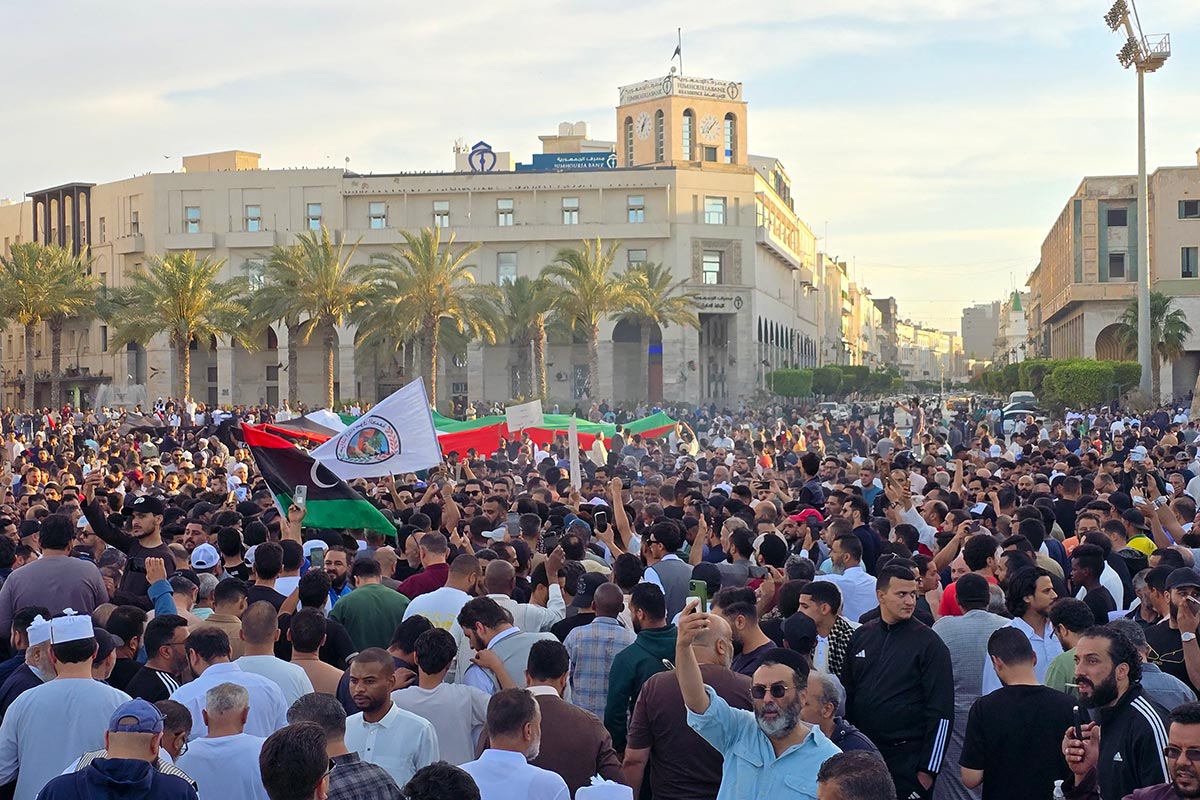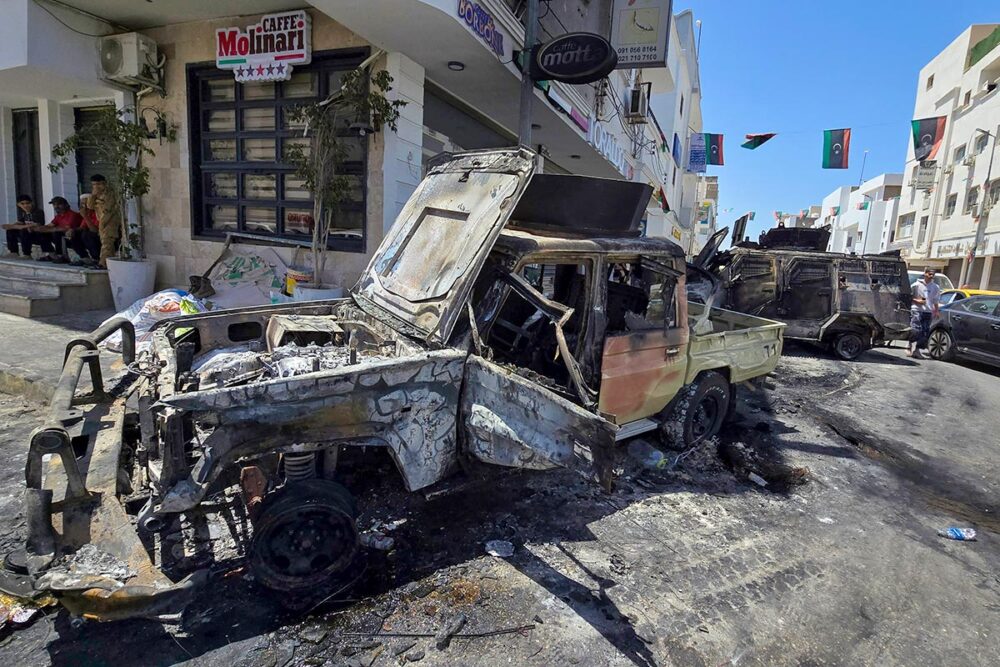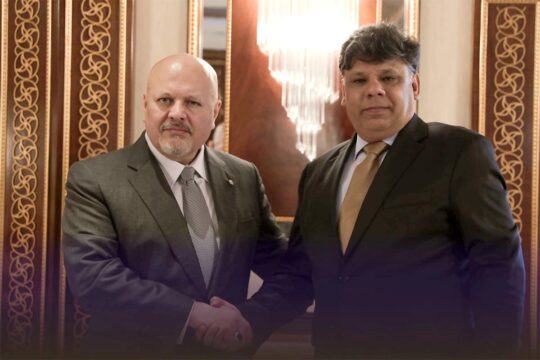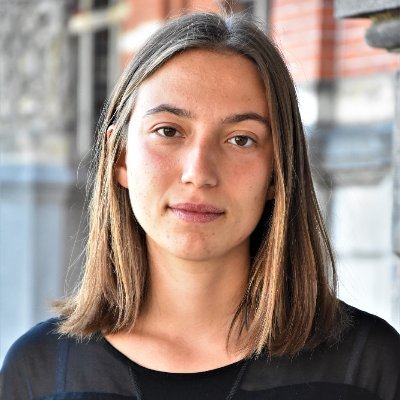Launched in 2011, after a United Nations security council (UNSC) referral, the ICC investigation in Libya has not led to any trial so far. In its early years, the investigation saw some momentum and a handful of high-profile arrest warrants. But former dictator Muammar Gaddafi was quickly killed, his son Saif Al-Islam Gaddafi remains at large, while his brother-in-law and intelligence chief Abdullah Al-Senussi is still awaiting an appeals trial in Libya.
But the Libyan Government has challenged the admissibility of both cases. In 2013, the ICC agreed that the Al-Senussi case was inadmissible, as proceedings were already underway in Libya. After a period of relative statu quo, in his early days as prosecutor, Karim Khan announced a new ICC strategy, saying that he would prioritise cases referred by the UNSC, such as Libya. Since then, seven new public arrest warrants have been issued.
The latest warrant, for the alleged leader of the infamous Mitiga prison, Osama Almasri Najim, has become both an example of the failure of the member states to cooperate with the ICC and of the Libyan judiciary to provide accountability.
Italy and Najim’s extradition
On 19 January 2025, Najim was arrested by the police in the city of Turin, on the basis of an ICC warrant. But Italy chose to send him back to Tripoli, instead of The Hague. Since then, according to Khan, Najim has lost his position as the head of the prison facilities, and no national proceedings seem to have formally started in Libya.
In a situation where the ICC cannot coercively enforce its arrest warrants, “the only hope would be the cooperation of third states when these people travel abroad. In the Najim case, the Court had done a very good job, so Italy’s position is very problematic,” says Chantal Meloni, professor of international criminal law at the University of Milan and senior legal advisor for the European centre for constitutional and human rights (ECCHR). “Libya is a State that until last month had never accepted the jurisdiction of the International Criminal Court, so it has never really cooperated with the Court. From the start, Libya has, on the contrary, tried to challenge the ICC jurisdiction.”
Despite Najim's swift repatriation to Libya on 15 May -which was a blow to the ICC-, Khan opened his speech by describing the recent period as an “unprecedented six months of dynamism” in the Libya investigation. He pointed to the “major step taken through the issuance of the first public arrest warrant [for Najim] with respect to crimes committed in detention facilities in Libya”, which he described as a “black box of suffering on the coast of the Mediterranean that nobody has wanted to open”. He added that his office was actively seeking new warrants and that progress had also been made in terms of partnership with victims and civil society.
But just a day after his address, Khan stepped aside until the end of the investigation by the UN Office of Internal Oversight Services (OIOS) into allegations of sexual misconduct. His deputy prosecutors, including Nazhat Shameem Khan who is in charge of Libya, are running the office in the meantime.
The domino effect of the Najim case
The Najim debacle has set several balls in motion, ones the ICC will now have to keep juggling with. Addressing the UNSC, Khan announced that the Court responded to a request by the National crime agency of the United Kingdom to assist with an investigation into Najim’s assets, which resulted in “orders to freeze accounts and properties with a combined value of 12 million pounds sterling”.
Ali Omar, director of the NGO Libya Crimes Watch (LCW), has welcomed the move. Financial measures can be effective, “particularly in cases involving militia leaders who have embezzled public funds and channeled them into personal networks abroad,” he says to Justice info, adding that the ICC should take similar actions against everyone subject to an arrest warrant.
Khan said in his speech that the warrant for Najim “sent what can only be described as shockwaves through the militias” on the ground, which Omar confirms. LCW’s director explains that, to his knowledge, “several militia members cancelled travel plans or went into hiding after the warrant was announced”. However, he also warns that “returning Najim to Libya instead of extraditing him was a major setback. It sent the opposite message, that ICC suspects remain untouchable as long as they are on Libyan soil”.
In Italy’s submission to the Court to explain why it failed to send the suspect to The Hague instead of Tripoli, Rome argued that there was a concurring extradition request from Libya, which they saw as having precedence because of the principle of complementarity.
The fallacy of the complementarity argument
In Meloni’s view, this justification doesn’t stand in relation to Italy’s obligation as a member party to ICC. “A country in good faith should have immediately pointed out that this request from the Libyan authorities had arrived, but instead this argument came out of nowhere,” she says. Omar also says that Italy’s reference to complementarity is “flawed and disconnected from Libya’s judicial reality”. “The system lacks independence, effectiveness, and the willingness to prosecute individuals affiliated with powerful armed groups.”
In the latest report of the prosecutor to the UNSC, complementarity is often mentioned together with cooperation with the Libyan authorities as key “to achieve accountability,” especially after the end of the investigation phase in early 2026. Omar raises concerns over this approach. He believes the Libyan legal framework is not ready to prosecute these suspects. “There is no clear incorporation of war crimes, crimes against humanity, or command responsibility in the national law. Numerous domestic laws still contravene basic human rights protections, creating a hostile environment for justice,” he says.
“Authorities in both eastern and western Libya claim to support the ICC, but in practice, they obstruct justice,” Omar adds. “Until the Prosecutor adopts a more assertive stance, one that uses all available tools to pressure Libyan authorities to meet their obligations, no progress will be made. Surrendering suspects must be treated as the central test of cooperation.”
According to Marwa Mohamed, an independent Libyan consultant, the country has a track record of eliminating high-level suspects instead of pursuing justice. “That’s what we have seen domestically, with Mahmoud al-Werfalli, who was wanted by the ICC in the past, and with ‘Bija’ [Abd Al-Rahman Al-Milad, a key actor in human trafficking, killed in September 2024] who was on the sanctions list.”
Al-Werfalli, the commander in the Al-Saiqa Brigade, was charged with various crimes committed in the eastern city of Benghazi between 2016 and 2018. He was shot dead in Benghazi in 2021. “And so it is never about the victims. And that’s where it is problematic, even on the ICC front, because the victims and their right to the truth, their right to justice and reparations are all absent in light of eliminations, case files are closed and they move on,” Mohamed says.
Accepting the ICC jurisdiction: a political move?
On 15 May, the ICC released the decision by the Libyan government of national unity (GNU), which controls the west of the country and is recognised by the UN, to accept the ICC jurisdiction from 2011 to 2027. “I strongly welcome the courage, the leadership, and the decision by the Libyan authorities,” Khan said to the UNSC, describing the moment as a “profound step to a renewed platform for collective action”.
But, in light of Libya’s past relationship with the ICC, Mohamed questions the declaration, and doubts Libya’s engagement will be long-term. “Why did Libya choose to do so now in the middle of a conflict and a legitimacy crisis, with a very politically savvy government, a government that has demonstrated it will do anything to stay in power?” She points to the fact that Prime Minister Abdul Hamid Dabaiba’s GNU was an interim one: the elections that were scheduled for December 2021 have yet to be announced. “I don’t know what the real motive is, but putting all of this in context, I think we should be asking, why now? And what do they seek to gain out of this?”
In mid-May, turmoil broke out once again in Tripoli, after weeks of mobilizing and building tensions, in what was the first major armed clash since 2023. The spark was the assassination of Abdel Ghani al-Kikli, one of the most influential militia commanders and the leader of the Stability Support Apparatus (SSA), a security institution affiliated with the Presidential Council. Al-Kikli was killed on 12 May while he was in a building controlled by Brigade 444, allied with Prime Minister Dabeiba whose GNU dissolved several militias in an attempt to gain more power. Violent fighting shook Tripoli, leaving several people killed and dozens wounded. Later in May, people also took to the streets in mass demonstrations in Tripoli and other cities to demand the departure of the GNU, all political bodies, and the dismantling of armed militias.
“What we are witnessing now is primarily a political manoeuvre aimed at rebranding the GNU as a government committed to accountability, despite its longstanding ties with the very militias it now claims to oppose,” Omar agrees. “The timing of the declaration, coinciding with renewed clashes in Tripoli and public protests against the government, makes its strategic nature clear.” He also reminds how politically divided Libya is, with the East controlled by marshal Khalifa Haftar and his family, who rejected GNU’s decision to accept the ICC jurisdiction. “It severely limits the practical impact of this announcement. What matters is whether it results in the surrender of suspects, effective investigations, and justice for victims and their families.”
While international observers share these concerns about the reasons behind this step, they also argue for this new jurisdiction to be used to the advantage of the ICC. For Serena Zanirato, programmes officer of the NGO Lawyers for Justice in Libya (LFJL), this implies that there will now be “no more admissibility challenges to investigate and prosecute ongoing and recent crimes, for instance with regard to crimes against migrants and refugees, and more intense investigation”. “Let’s try to benefit from these advantages as much as possible so that there are concrete results,” she says.
According to Meloni, one positive aspect would be that now, the jurisdiction is no longer based on the sole UNSC referral. “In the Najim situation, one of the three ICC judges had argued that his crimes were not sufficiently related to the situation as it had been delimited by the Security Council in 2011,” she notes. This would now be less easy to argue.

One year left...
In its report to the UNSC, the ICC prosecutor’s office also marks an increased engagement with the civil society as one of its key advancements “There has been a noticeable improvement in the ICC’s outreach to victims and survivors, especially when compared to two or three years ago,” Omar says. “While engaging with victims inside Libya remains nearly impossible due to security concerns and obstruction by authorities, we’ve seen more active and sustained efforts by the Court to reach out in safe locations abroad.” The latest periodic meeting held by Deputy Prosecutor Nazhat Shameem Khan in March indeed included 38 Civil society organisations and human rights activists.
Currently, the ICC prosecutors are looking into four lines of enquiry in Libya. The first one relates to the 2011 civil war violence, for which the Libyan de facto prime minister of the time, Saif Al-Islam Gaddafi, is an accused at large. For this case, the ICC has closed the investigation phase. The second line of inquiry is crimes in detention facilities, where Najim is the only public suspect. The third one focuses on the 2014-2020 military operations and conflicts, which resulted in six arrest warrants for the violence committed in Tarhuna. In his May report, the prosecutor stated that the team is looking at the possibility of filing new warrants on a wider range of cases.
The fourth line of enquiry is for crimes against migrants and refugees. The report focuses on the efforts and progress made by the Joint Team, composed of national prosecutors in the Netherlands, Italy, Spain, and the United Kingdom. However, But Zanirato stresses that “some states don’t even have the legislation to prosecute international crimes,” and that Italy, for instance, still has to incorporate the Rome Statute crimes in its national jurisdiction.
For Meloni, the office of the ICC prosecutor seems to limit itself to gathering and sharing evidence with the countries. “This is problematic because we have seen in recent years that the trials done at the domestic level do not have the dimension of crimes against humanity, do not analyse the facts in their context, which also includes potential responsibilities of European actors,” she argues. In 2022, the ECCHR sent a communication to the ICC detailing how the European Union’s migration policies have contributed to crimes against humanity in Libya.
“No clear or coherent strategy”
Khan has renewed its plan to close the investigation phase in Libya by the first quarter of 2026. He assured that they will nevertheless keep working to execute the existing arrest warrants and open trials. Omar hopes this decision will be reconsidered: “We have consistently called for the continuation of the ICC’s investigations in Libya. In the current context, there are no viable alternatives for justice, international crimes are still being committed, perpetrators remain at large, and impunity is deeply entrenched. Ending the investigation would send the wrong message to victims and embolden those responsible.”
Omar points to the photos where Khan and Haftar, the military strongman controlling eastern Libya, posed together in 2022, and reminds that Haftar has also been accused by a US court of committing war crimes during the civil war: “We are particularly concerned by the continued failure to issue arrest warrants against those most responsible for serious violations in eastern Libya. This raises troubling questions about selectivity and the risk of focusing only on low-level perpetrators.”
“It has now been 14 years since the start of the investigation, and there is no clarity on the ground on what the ICC does, what functions it has, and what it can or cannot do,” Zanirato says. As for Mohamed, she believes the ICC investigation in Libya has also been used internationally as a justification to avoid setting up new avenues for accountability, like a hybrid court or an independent body such as the International Impartial and Independent Mechanism for Syria. With no accused behind bars, she feels the Court “served more as a blockage and it hasn’t really delivered much or anything”. Omar agrees: “We see no clear or coherent strategy from the ICC in Libya, certainly not one that has translated into results on the ground.”








